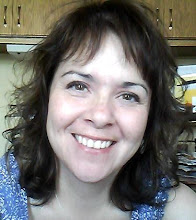Bradshaw, John. Healing the Shame That Binds You. Health Communications, Inc.: Deerfield Beach, Florida, 1988.
It's the rare occasion that finds me reading non-fiction, unless is theology.
With the advice of a favored mentor, I have been reading Healing the Shame that Binds You. Having only completed the first chapter - because this stuff is so heavy, I will probably be reading this book for the next month - I have two thoughts.
First, I don't like to read non-fiction, self-help. It's painful because I don't necessarily want to Deal with Things. It's ponderous because I don't have the same willing-suspension-of-disbelief I find so easy to engage while reading good fiction (honestly, I can suspend away for bad fiction too in a desperate bind). And it's mind-numbingly Dull lacking heroes, action scenes, a good love connection, and a plot I can follow without having to change my life.
Second, I cannot accept sweeping generalizations or weighted statements that leave me feeling like I missed the last twenty chapters. Footnotes can be a poor substitute for the substance of the argument that led the author to the statement he or she has just made.
That said, I think there's something here I need to read, ponder, and use to leave behind a past that seems to be a heavier load every year. My unwillingness to address some of the things that have happened in my life, my inability to be justifiably angry and then get over it, and my attempts to stay busy enough to avoid becoming a truly well and happy person have led me to a place where I feel weak, unable to made good decisions, and constantly worried.
It's time to finish the book. If it doesn't have all the answers - and it won't - it's a good start. Shame, after all, is toxic. John Bradshaw, author, draws a quote from The Road Less Traveled:
The neurotic assumes too much responsibility, the person with a character disorder not enough. When neurotics are in conflict with the world, they automatically assume that they are at fault. Whehn those with character disorders are in conflict with the world, they automatically assume the world is at fault.I always assume I am at fault.
Bradshaw makes an interesting case for why I feel that way.
Still, I know, logically, sometimes I'm at fault.
If Bradshaw cannot tell me how to stop the cycle of shame, maybe one of his footnotes will lead the way.


No comments:
Post a Comment